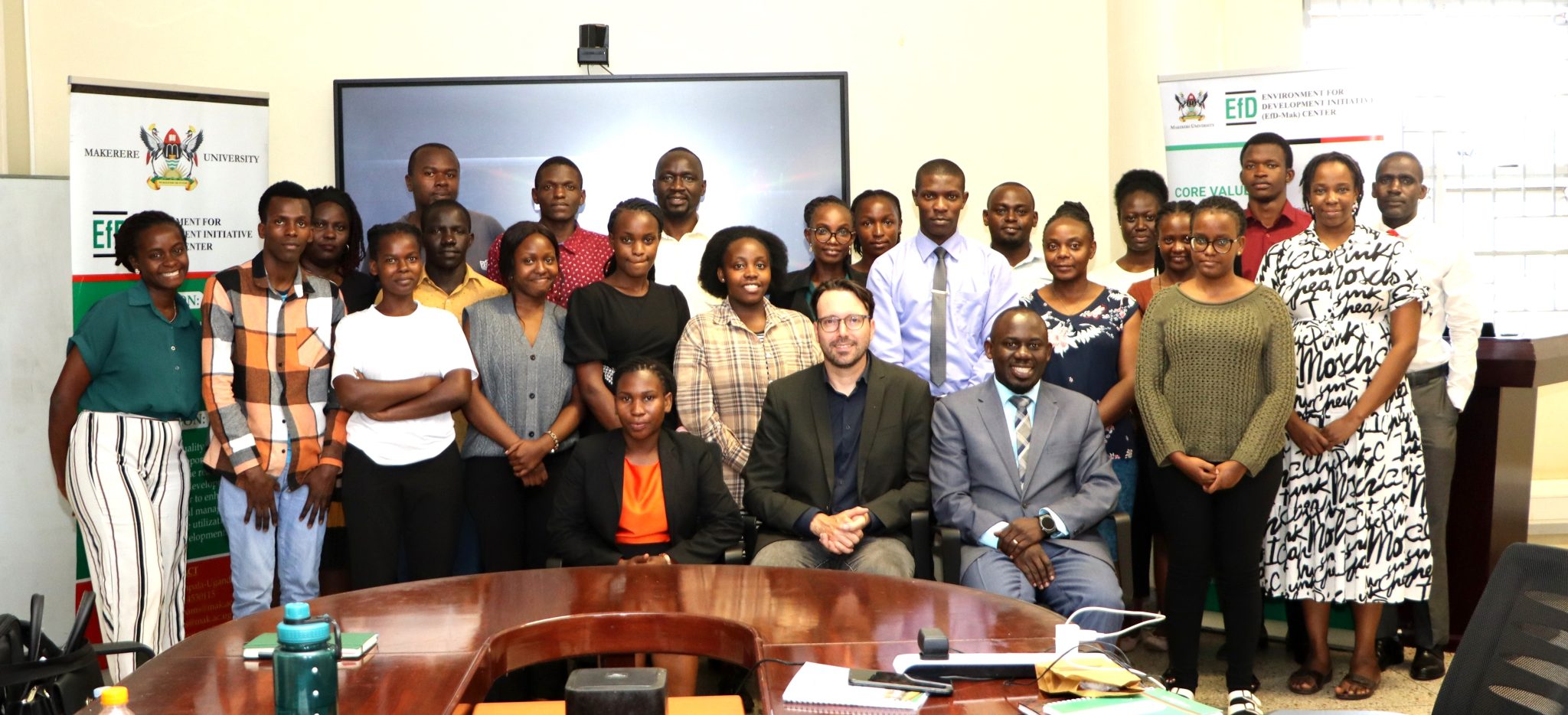Kampala, Uganda – August 27, 2025
A new study spanning a decade has revealed that the prices currently offered for carbon credits and other climate finance instruments are too low to meaningfully reduce greenhouse gas emissions in developing countries.
The findings were presented by Canadian scholar Prof. Mark Purdon during a seminar at Makerere University, where he launched his new book “The Political Economy of Climate Finance Effectiveness in Developing Countries: Carbon Markets, Climate Funds, and the State.” The event, hosted by the Environment for Development (EfD) Mak Centre, attracted graduate students and academic staff from the Schools of Economics and Agricultural Sciences.
Prof. Purdon, an Associate Professor at Université du Québec à Montréal (UQAM), based his conclusions on a comparative study conducted between 2008 and 2018 in Uganda, Tanzania, and Moldova. His research showed that while carbon markets and climate funds are theoretically designed to reduce emissions, their real-world effectiveness is constrained by the low financial incentives attached.

“Carbon prices during the period I studied were simply too low to drive meaningful emission reductions,” said Prof. Purdon. “They only worked in contexts where governments were already trying to push development initiatives-like Uganda’s forestry projects and the climate finance just helped amplify that effort.”
The research contrasts Uganda’s relatively proactive approach with Tanzania’s limited engagement, attributing the difference not to institutional capacity but to political will.
“In Tanzania, the government just wasn’t genuinely interested in these instruments -they didn’t find the financial incentives compelling. Uganda, on the other hand, saw even the modest funding as worth integrating into its broader development goals,” he added.
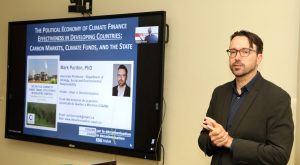
Interestingly, Moldova also showed effectiveness similar to Uganda, despite having different levels of state capacity. Prof. Purdon emphasized that success in utilizing climate finance depends more on political interest than institutional strength alone.
The seminar highlighted the importance of domestic commitment in making international climate finance work. According to Purdon, climate finance is unlikely to succeed in countries lacking political interest, regardless of the mechanisms in place.
The professor’s book aims to inform policymakers, development agencies, and researchers about the conditions under which climate finance can effectively contribute to emission reduction. He expressed hope that students and faculty at Makerere University would further engage with the study’s findings.
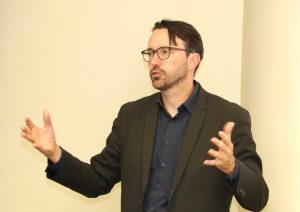
“This is how ideas turn into action – through forums like this,” he said, noting his appreciation for the strong turnout and engagement at the event.
Prof. Purdon was in Uganda to attend the International Growth Center (IGC) conference later in the week, but used the opportunity to share his latest work with the Makerere academic community.
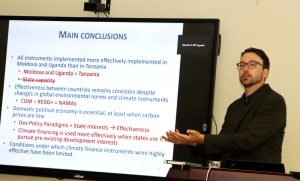
Uganda to Launch National Climate Finance Strategy as Experts Call for Private Sector Investment in Adaptation
Uganda is set to launch its first-ever National Climate Finance Strategy on September 12, 2025, a milestone development in the country’s climate policy architecture, according to remarks made by Dr. Peter Babyenda, Policy Engagement Specialist at the EfD-Mak Centre.
Speaking on behalf of Prof. Edward Bbaale, Director of EfD-Mak Centre, Dr. Babyenda emphasized that climate finance will only be effective if private sector participation is prioritized especially in adaptation-focused investments.
“The private sector will only invest where there’s a return. We must ask how to make climate investments profitable,” Dr. Babyenda said. “Much of our climate financing currently goes toward mitigation, but Uganda’s needs are more aligned with adaptation especially in agriculture, which remains highly vulnerable.
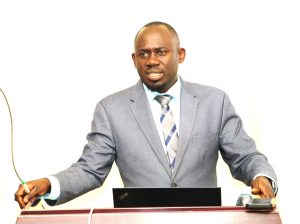
He cited his recent consultancy with the International Fund for Agricultural Development (IFAD), which explored strategies for increasing private sector investment in agricultural adaptation. The findings, expected to be published soon, were presented to various donor communities and could shape future financing models in Uganda.
Dr. Babyenda noted that while mitigation efforts like tree planting are easier to quantify and attract funding, adaptation remains underfunded despite its critical relevance for Uganda. He called for targeted strategies to shift this imbalance.
Highlighting the significance of Prof. Purdon’s new book, “The Political Economy of Climate Finance Effectiveness in Developing Countries”, Dr. Babyenda stressed the importance of understanding political will in determining the success of climate initiatives.

“The experiences from Uganda, Moldova, and Tanzania outlined in the book show that effectiveness is possible where there is political interest. It is not just about institutional capacity it is about commitment,” he said.
He further revealed that Uganda’s Ministry of Finance, Planning and Economic Development has already established a Climate Finance Unit, which is now leading efforts to formalize the upcoming strategy.
In addition to national developments, Dr. Babyenda warned of growing international pressure. He pointed to upcoming European Union regulations, including the Cross-Border Adjustment Mechanism (CBAM), which could restrict exports such as coffee unless exporters prove their products are deforestation-free.
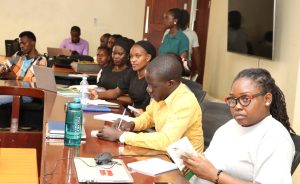
“If we don’t have systems like carbon taxes or certified credits, our goods will face fines or lose market access. We must prepare for this global shift,” he warned.
Dr. Babyenda also announced that Makerere and IGC would sign a Memorandum of Understanding, solidifying their continued partnership in climate economics research and policy development.
He closed by encouraging students to engage with the issues raised during the seminar, suggesting they could form the basis of graduate research or postdoctoral work, especially with available funding in climate-related fields.
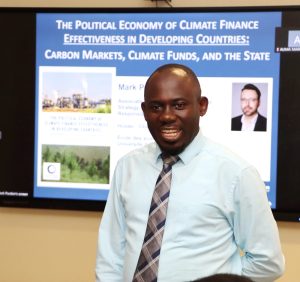
“Monies are there and these are the issues. Our roads, our crops, our lives are being affected. We need solutions rooted in evidence and action,” he said.
Book Offers Critical Insights for Evidence-Based Policy, Says Reviewer Dr. Byakagaba
Dr. Patrick Byakagaba, a leading Ugandan environmental policy expert and one of the reviewers of the launched book, praised the publication for shedding light on the political economy factors that determine the success or failure of climate finance instruments in developing countries.
Dr. Byakagaba described the work as a timely and evidence-based resource that should inform both policy and practice.
“In my opinion, this book helps us understand the political economy factors that are critical for the effectiveness of the different climate financing instruments,” Dr. Byakagaba said. “It shows what is working, what is not, and what we must do to leverage successful measures.”
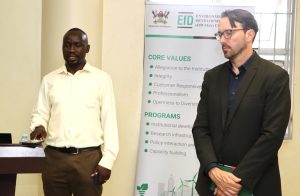
He emphasized the book’s relevance not only for academics but also for practitioners and students in economics, environmental science, and natural resource management – many of whom are directly involved in projects funded by international climate finance.
Unlike many theoretical publications, Dr. Byakagaba noted that the book stands out for its field-based evidence drawn from Uganda, Tanzania, and Moldova – countries with shared democratic governance structures but differing levels of engagement in climate finance initiatives.
“This isn’t just theoretical work,” he said. “It gives us a strong theoretical foundation but also backs it up with real-world evidence. That’s exactly what we’ve been missing – research that informs policy in a tangible, practical way.”
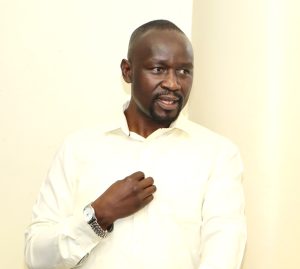
He stressed the importance of building on this research to expand the body of evidence needed for crafting effective and locally relevant climate finance strategies.
“If we are going to adopt evidence-based policy instruments, we must continue investing in research that reveals what’s actually working on the ground,” Dr. Byakagaba urged.
The seminar highlighted the growing need to critically evaluate and adapt international climate finance mechanisms to local political and economic realities – a message echoed by both Prof. Purdon and other experts at the event.
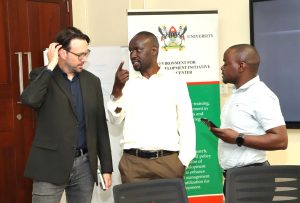
Book summary
There is ample evidence that engaging developing countries on climate change mitigation would have significant, positive impacts on global climate efforts. There is much debate, however, on the most effective strategy for unlocking these low cost mitigation opportunities. While the Clean Development Mechanism (CDM) emerged as the main climate finance instrument for engaging developing countries under the Kyoto Protocol, the carbon market approach it embodied would largely be replaced by a new array of climate finance instruments based on climate funds.
In The Political Economy of Climate Finance Effectiveness in Developing Countries, Mark Purdon shows that the effectiveness of climate finance instruments to reduce emissions under either strategy has depended on the interaction between prevailing ideas about how to develop a nation’s economy, as well as state interests in various economic sectors.

Based on multiple field visits over a decade in three countries, the author demonstrates that climate finance instruments have been more effectively implemented when the state treats them as vehicles for addressing priority development issues. Climate finance instruments were more consistently and effectively implemented in Uganda and Moldova than Tanzania, despite differences in state capacity between countries. This pattern held for the CDM,as well as subsequent instruments largely based on climate funds such as Reducing Emissions from Deforestation and Forest Degradation (REDD+) and other national mitigation actions. Contributing to broader debates on international climate cooperation, Purdon’s findings inform international efforts to support national climate plans and catalyze low-carbon development by emphasizing the importance of domestic politics and the state.

The Political Economy of Climate Finance Effectiveness in Developing Countries: Carbon Markets, Climate Funds, and the State
By Mark Purdon
Oxford University Press 2024
Purchase Online: https://global.oup.com/academic/product/the-political-economy-of-climate-finance-effectiveness-in-developing-countries-9780197756836
Jane Anyango is the Communication Officer EfD Uganda.

